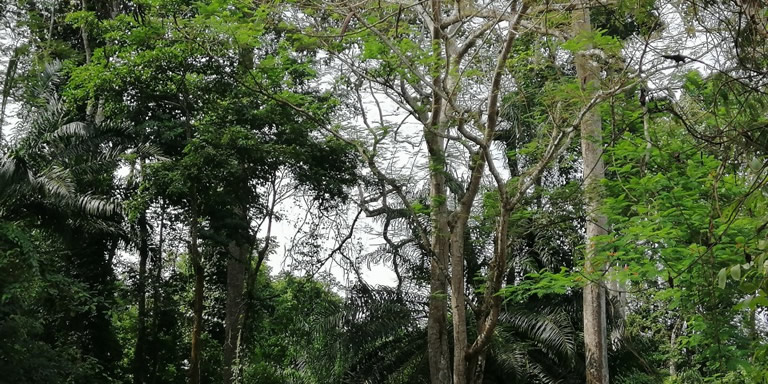All forested areas around the world from woods to jungles are critical in global climate action. As deep resources of carbon recycling, they help to mitigate the negative effects of CO2 emissions caused by humans. These emissions are causing warmer temperatures across the world, increases in extreme weather events such as floods, droughts, severe storms etc, which result in damage to local ecosystems, upon which many poorer people depend for their livelihoods.
The continent of Africa is the only major region of the world not to have experienced substantial and widespread economic development. As such it is a significant region for the future of sustainable global forestry. African forests have the potential to supply timber and other forest-based products to meet growing demand within domestic markets and abroad, and while some of these resources are being depleted unsustainably, there is still time to convert the potential of the forests into long term and sustainable economic benefits. There is a strong commercial future in Africa available for sustainable commercial forestry, which has the unique ability to catalyse economic, social, and climate-smart transformation.
But despite the immense potential of Africa’s huge resource-rich forests, commercial investments in forestry have slowed to almost zero across the continent in the past 20 years as population has shifted to urban areas. The growth in new plantations during this time has been minimal, and there has been a reduction in government-owned forested land.
Real and perceived financial barriers such as low returns on investments and high perceived risks have dissuaded investors from fully investigating the potential to develop Africa’s forests to their maximum sustainable capacity and for the equal benefit of rural communities. There are technical and regulatory barriers, mostly different in each African country: high establishment costs; insufficient operational scale; lack of management expertise and industrial processing facilities, among many other challenges.
In addition, Africa’s forests are becoming vulnerable to climate change and global warming impacts. But these challenges produce unique opportunities at a unique time if the appropriate policies and institutional frameworks are put in place to recognise the role of the private sector, the limitations of the public sector, and public-private partnership engagements, as well as the incorporation of multilateral environment agreements into national plans and programmes.
Trees, forests, people and environment are intricately related through food chains, life support systems, maintenance of the hydrological cycle and provision of other environmental services. Forests are far more significant in how they can work in a sustainable process than in what they are or represent. For example, they protect and maintain sources of genetic materials for plant breeding programmes to improve food crops and produce herbal remedies and generic drugs. Forest biomes support flora and fauna that serve agronomic purposes, such as pollination.
Africa needs to invest much more in itself if it wants more foreign investment. International partnerships and understandings have to be the best way forward.
But, initially, Africa may lack information more than it lacks money. It urgently needs more information on climate change impacts on African forests and the complex relationships relating to climate change that face African communities across the continent.
The challenges of getting the policies and incentives right go beyond getting information on the impacts of climatic factors on forests. They extend also to acquiring knowledge and information on the interaction between the different climate change factors.
In most of Africa, there is no reliable or updated information on forest and tree resources because of the lack of permanent sampling plots for monitoring long term changes. This has resulted in Africa suffering gaping holes in the data needed for informed decision making.
The African forest sector is the most lucrative investment in the longer term. For now it needs effective monitoring, protection capabilities, and detection activities to face the increasing short term challenges caused by human and climate change impacts. But the forestry sector in many African countries could be growing the beanstalk to economic transformation.

